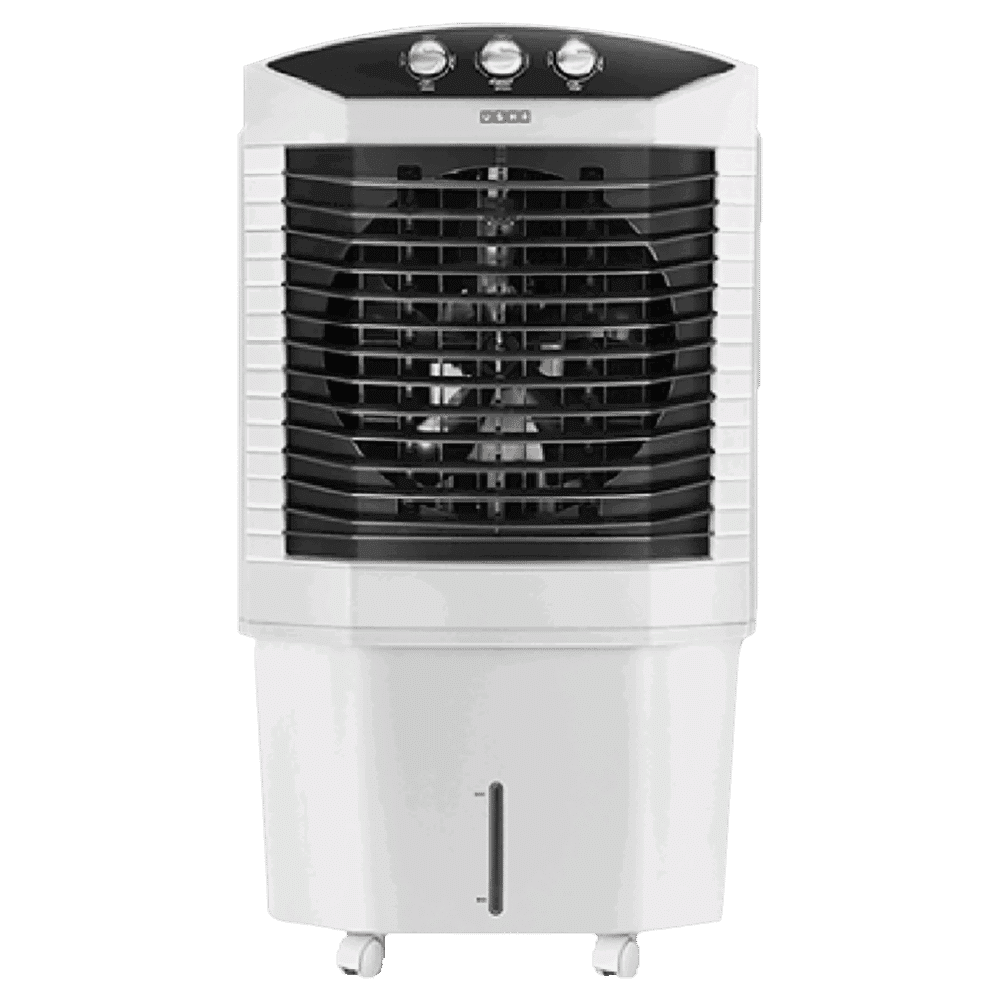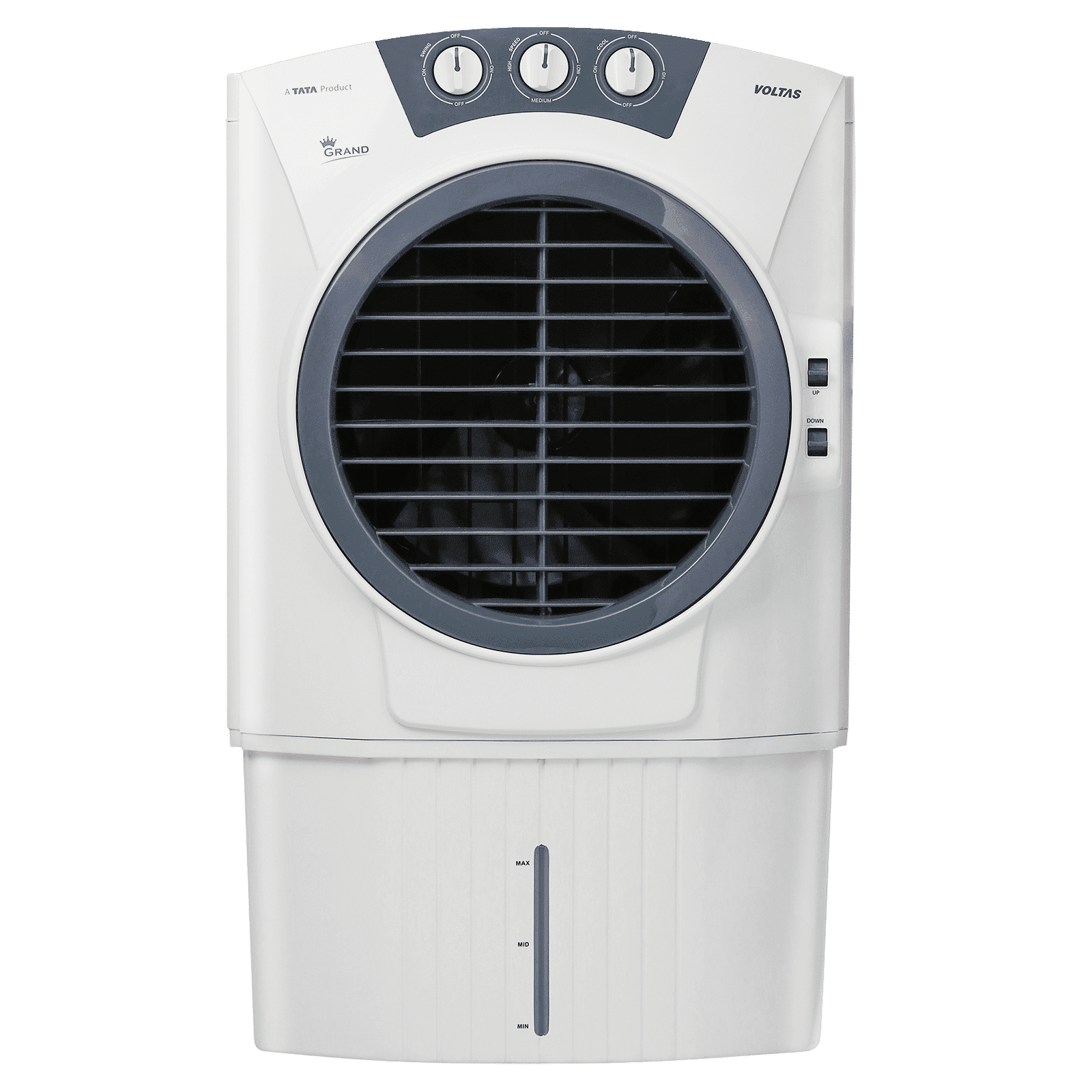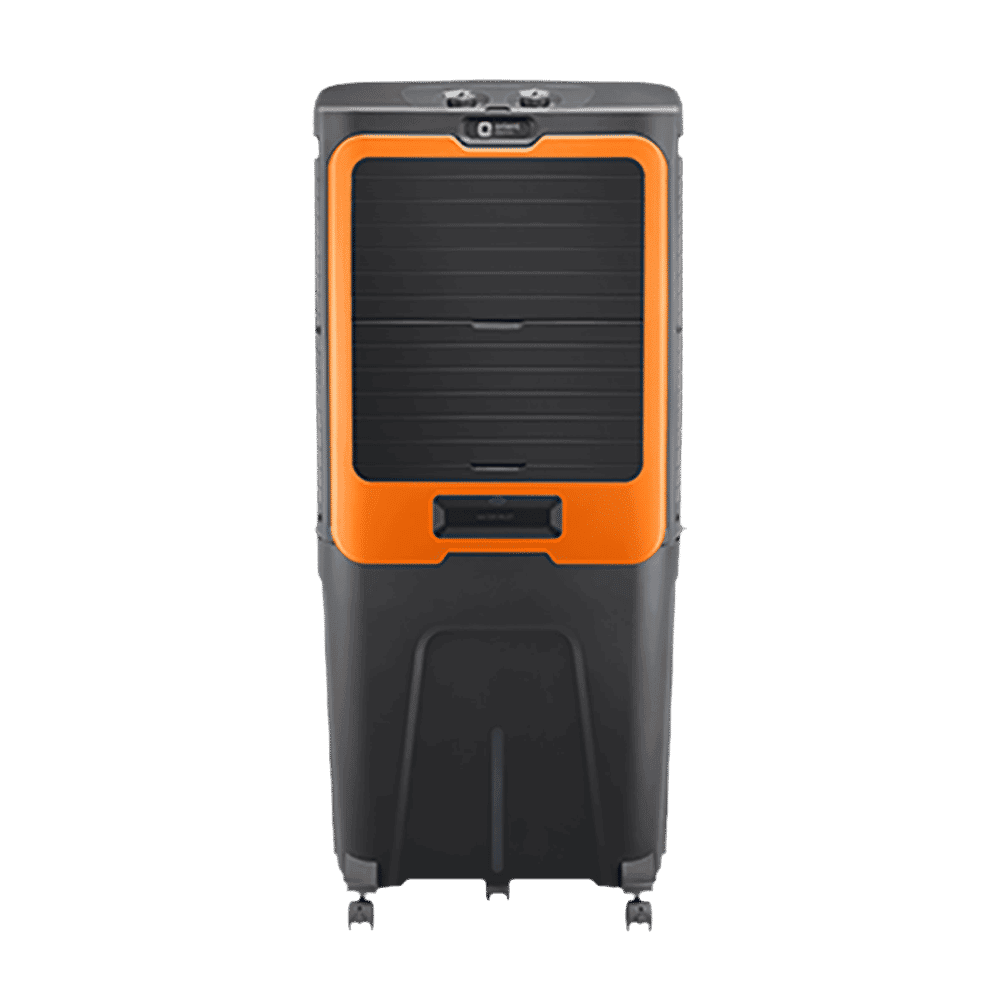
Home Appliances
•06 min read

Buy USHA DYNAMO 50 Litres Desert Air Cooler with Inverter Compatible (Thermal Overload Protection, White) online at best prices from Croma. Check product details, reviews & more. Shop now!
Air coolers have become a popular choice for cooling in many Indian households due to their affordability and eco-friendly cooling method. However, many users are unaware of the disadvantages of air cooler systems compared to air conditioners. In this article, we highlight seven major drawbacks of air coolers, diving deep into aspects such as cooling efficiency, maintenance, noise, and more. By the end, you'll gain a clearer understanding of air cooler drawbacks that can help you make an informed cooling decision.
Air coolers operate on the evaporative cooling principle, which works best in arid environments. This means these systems excel in dry climates but tend to fall short in regions marked by high humidity.
Since air coolers rely on the evaporation of water to lower the ambient temperature, they are significantly less efficient in humid areas. When the air is already saturated with moisture, the cooling process does not occur as efficiently, leaving your room warmer than expected.
While air conditioners have advanced refrigeration systems that can greatly reduce room temperature, air coolers generally produce a more modest drop in temperature. This lower cooling efficiency is one of the key disadvantages of air cooler systems when compared with air conditioner cooling performance.
The need for regular upkeep is another significant factor when considering air cooler systems.
Air coolers need frequent cleaning to prevent the build-up of mold, mildew, and bacteria. The freshness of the air and the overall system efficiency depend on meticulous maintenance. Neglecting this can lead to health concerns, particularly if mold or allergens proliferate.
In addition to cleaning, you also need to regularly refill the water tank. For busy individuals or households looking for a more convenient solution, this can be a considerable inconvenience, as the water refilling process disrupts the continuous operation of the cooler.
Noise is another aspect where air coolers may not meet user expectations.
During operation, air coolers can produce a noticeable level of noise, particularly from the fan and the water distribution system. For those looking for a peaceful indoor environment, this additional noise can become a severe drawback.

Buy VOLTAS Grand 72 Litres Desert Air Cooler with Thermal Overload Protection (3 Speed Control, White & Grey) online at best prices from Croma. Check product details, reviews & more. Shop now!
When compared to modern air conditioners, which often incorporate noise reduction technology and silent modes, air coolers tend to be louder. This increased noise level especially becomes a nuisance in environments such as bedrooms or study areas.
Did You Know? Air coolers use evaporative cooling to lower temperatures, which is less effective in humid climates. For optimal performance, they require a well-ventilated space and regular maintenance.
Another common air cooler issue relates to its limited coverage area. These systems are designed primarily for small to medium-sized rooms.
Due to their evaporative technology, air coolers are less effective in cooling larger rooms or open spaces. The inability to consistently circulate cooler air over expansive areas is one of the prominent air cooler cons expressed by many users.
To cool larger areas effectively, the necessity for multiple air cooler units increases both your initial expenditure and ongoing maintenance. This requirement adds complexity and may negate the cost benefits typically associated with air coolers, especially when compared to systems with centralized cooling like air conditioners.
The building up of mold, mildew, and allergens in a poorly maintained air cooler can lead to potential health risks.
Since air coolers use water in their cooling process, stagnant water exposure can result in the growth of mold and mildew if not cleaned regularly. This is a major health consideration, particularly in households with vulnerable members like children or the elderly.
If the water tank or filters are not well maintained, air coolers can inadvertently spread allergens and irritants around the room, potentially aggravating respiratory conditions and reducing overall indoor air quality.
Although air coolers are generally more cost-effective than air conditioners in terms of upfront cost, there are hidden disadvantages related to energy consumption and maintenance expenses over time.

Buy Orient Ultimo 88 Litres Desert Air Cooler with Aerofan Technology (Ice Chamber, Dark Grey) online at best prices from Croma. Check product details, reviews & more. Shop now!
The energy consumption of air coolers may be lower than that of air conditioners; however, the benefits are often offset by their limited efficiency. In some cases, the prolonged operation of a less effective cooling system may result in marginally higher energy bills, especially in extreme weather conditions.
When considering both initial and operational costs, air cooler limitations become apparent. For larger spaces or more humid regions, the cost effectiveness diminishes due to the need for multiple units and increased maintenance tasks. For a comprehensive cooling solution, it's essential to weigh the affordability against performance and convenience.
The main disadvantages include limited cooling efficiency, high maintenance requirements, noise issues, limited effectiveness in large spaces, air quality concerns, and potentially higher energy consumption.
It is recommended to clean your air cooler every 1-2 weeks to prevent mold, bacteria build-up, and maintain optimal performance.
No, air coolers are less effective in humid climates as their evaporative process relies on dry air to work efficiently.
Air coolers usually produce more operational noise compared to air conditioners, making them less ideal for quiet spaces.
Generally, air coolers are less effective in large spaces and may require multiple units, which increases both upfront and maintenance costs.
In summary, while air coolers offer an affordable and environmentally friendly cooling alternative, they come with a set of significant limitations. With reduced cooling efficiency in humid regions, high maintenance demands, noticeable operational noise, and challenges in cooling large spaces effectively, potential users should consider these factors carefully. For those seeking a fast and hassle-free cooling solution, exploring alternatives may be worth the investment based on personal requirements and living conditions. Understanding these air cooler problems emphasizes that no single solution fits all, and making a well-informed decision is key to achieving optimal indoor comfort.
Shopping smartly means evaluating your needs against the available technology. Just as you earn NeuCoins rewards on your purchases and benefit from express delivery services on Tata Neu, being well informed about the disadvantages of air cooler systems can help you choose the most appropriate cooling solution for your home. The insights shared in this article not only assist in deciding between an air cooler and an air conditioner but also ensure that your investment brings the best balance of cost, efficiency, and health benefits.